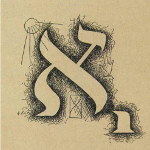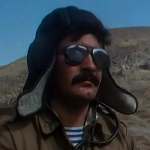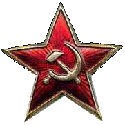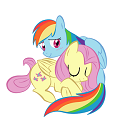|
What was the loss rate like for WWI German subs? IIRC the WW2 loss rate was something horrifying like 97% of subs that ever went out to sea were eventually lost at sea.
|
|
|
|

|
| # ? May 16, 2024 16:09 |
|
wdarkk posted:What was the loss rate like for WWI German subs? IIRC the WW2 loss rate was something horrifying like 97% of subs that ever went out to sea were eventually lost at sea. The Germans+Austrians built a total of 375 U-boats during WWI. Approximately 205 of these (54%) were lost to enemy action (ramming, mines, torpedoes, depth charges, gunfire, other/unknown) and then another 171 (46%) survived the war to be surrendered to the Entente, so a fair bit better than how the Kriegsmarine ended up. When the Entente gave their first set of demands to Germany during the armistice, part of it was to order the surrender of 250 U-boats, parceled out to the various nations - France and Italy wanted a bunch for to buff up their post-war navies, Japan wanted some for study, the US and Britain wanted a few as keepsakes. The Germans replied that they did not actually have that many, but I felt that it underscored how seriously the Entente took the threat. http://www.uboat.net/wwi/boats/ http://www.uboat.net/wwi/fates/losses.html http://www.uboat.net/wwi/fates/listing.html bewbies posted:In related news I absolutely cannot imagine how awful and frustrating and horrifying it would have been to repeatedly fire dud torpedoes. You're in a steel tube with a couple dozen other dudes with no showers and bad food for weeks at a time, you do well enough to crawl your tube into an attack position against something, you do all the calculations right to deliver your ordnance, you think you're about to strike a blow for Uncle Sam, and then THUNK. You didn't sink anything, any escorts in the area are now hunting for you, and you just lost confidence in the primary weapon that your military profession is designed to employ. Gross. I know this wasn't exactly what you meant, but American boats did have showers and refrigeration, so your fellow dudes were probably only a few days off from their last shower instead of weeks off, and the food didn't taste like diesel fumes. The Germans though, hoo-boy, I think it was Gunther Prien that outright refused to fire any torpedoes at all in early 1940 until they fixed the torpedoes.
|
|
|
|
Since we're subchatting, one of my current side projects is translating the war diaries of U-618, the type VIIC that my great-uncle Hans served on until its sinking in August '44. Uncle Hans is pictured here (scroll down to the crew photo, he's leftmost on the front row); here's a sample page from U-618's first patrol with my attempt at translation. Also, anyone interested in WWII submarining should check out Clay Blair's "The Hunters" and "The Hunted" (on the German subs) and "Silent Victory" (on the Americans in the Pacific). He goes into the American torpedo issues discussed earlier, as well as the USN's reluctance to adopt wolfpack tactics.
|
|
|
|
Kemper Boyd posted:There's also the issue that beyond a semi-ambitious master's thesis I can't come up with poo poo to say about the Nazis, when it comes to the whole issue of Nazi Germany and religion. There's only that many words you can squeeze out when your end result is "they didn't have their poo poo together and their policies were all over the place." Raskolnikov38 posted:For Berlin: For London, Hendon Aerodrome/RAF museum in Collindale is well worth the trip out. Bit of a trek with tube and bus needed, but you get to stand under a Vulcan so vOv. a travelling HEGEL posted:The Berlin Hauptbahnhof sinage WILL confuse you, even if you speak German. Or there's one, and that is terrifying when you are scared and alone and have to get to Jena by yourself.
|
|
|
|
Arquinsiel posted:Oh god this, there are so many "GenericGermanSyllable <dude standing in front of the sign> bahnhof" stations along the same lines that it's just plain inefficient. count_von_count posted:Since we're subchatting, one of my current side projects is translating the war diaries of U-618, the type VIIC that my great-uncle Hans served on until its sinking in August '44. Uncle Hans is pictured here (scroll down to the crew photo, he's leftmost on the front row); here's a sample page from U-618's first patrol with my attempt at translation. HEY GUNS fucked around with this message at 05:52 on Jan 2, 2014 |
|
|
|
Could someone please give me a little run-down on why the US intervention in the Vietnam War became such a clusterfuck boondoggle? I know the conflict is a ton more nuanced than that since its basically one long period of war from the First-IndoChina War to the Fall of Saigon but something would be nice.
|
|
|
|
Shimrra Jamaane posted:Could someone please give me a little run-down on why the US intervention in the Vietnam War became such a clusterfuck boondoggle? I know the conflict is a ton more nuanced than that since its basically one long period of war from the First-IndoChina War to the Fall of Saigon but something would be nice.
|
|
|
|
^^^^ Flippant response: look at the current post-action tearing apart of the Afghanistan and Iraq campaigns and just call it a day. a travelling HEGEL posted:Nah, my problem was that the information desk in the Berlin Hauptbahnhof is impossible to find (the arrows point...a lot of places), everyone you ask will tell you it's on a different floor than the one you are currently occupying, and the elevators may or may not be working at the time. Kind of balanced out in the end I guess?
|
|
|
|
Arquinsiel posted:I don't remember looking for it TBH, but it seemed open-plan enough for me to get where I needed to go relatively easily.
|
|
|
|
gently caress Truman, we should have just told the French to gently caress off when they went crying about restoring order to their former colonies.
|
|
|
|
We should have told them to gently caress off the moment they fired on us during Torch. Their partisans did useful work during D-Day but after that the Free French were mostly just a pain in the rear end. On the other hand, I don't know French postwar internal politics well enough to know how badly we had to worry about them ending up neutral or tilting Soviet during the Cold War.
|
|
|
|
Shimrra Jamaane posted:gently caress Truman I had this exact same feeling creep up on me after reading Racing the Enemy, but then remembered that the guy got pretty much thrust into a position for which he wasn't at all prepared 
|
|
|
|
de Gaulle was a huge loving rear end in a top hat too.
|
|
|
|
Koesj posted:I had this exact same feeling creep up on me after reading Racing the Enemy, but then remembered that the guy got pretty much thrust into a position for which he wasn't at all prepared Well, I used to be sympathetic, but apparently Uncle Ho offered the US a pretty sweet deal, including a major naval base overlooking the South China Sea. But he turned it down, because, I don't know, wanting the French to stay in NATO or something.
|
|
|
|
^^^^ Good thing he turned him down and France stayed in NATO so the Soviets didn't invade Germany, right? a travelling HEGEL posted:I can't see well enough to tell whether or not my roller suitcase would fit on the escalators and I didn't want to risk it, so I ended up going out of my way to take the elevator every time, which was much more annoying.
|
|
|
|
The short answer is that America had a difficult objective of creating a pro-Western South Vietnam that could stand up to the North, was constrained by a bunch of Cold War nonsense (no negotiating with communists except from a position of absolute strength. No using firepower that might involve China and kick-off Korean Intervention II or World War III), and had a command structure that was incapable of seriously considering alternatives or backing down from escalation. America got involved in Vietnam by supporting the French efforts to keep their colony in Indochina as part of a quid pro quo deal to keep the French in NATO. After the French collapsed at Dien Bien Phu, various great powers (US, UK, USSR, China, France) negotiated a partition at the 1954 Geneva Accords. Vietnam was to be split into a Viet Minh North and 'Free' South, with a referendum reuniting the country under a single government in two years. Many of the problems started here, since the North got Ho Chi Minh, Vo Nguyen Gi�p, and basically every politically-minded Vietnamese guerrilla fighter, while the South got a bunch of exiles and former French colonial adjuncts as their new rulers. At this point, America took over as South Vietnam's patron, and started supplying aid and advisers. Events continued at a pretty low level, with the North focused on land reform and 'building socialism at home' and Ngo Dinh Diem concentrating power in his person in the South. Ngo Dinh Diem is a perfect example of the problem with Vietnamese leadership. A staunch anti-Communist and American favorite, he was a Catholic in a Buddhist country and a horrific politician; paranoid, tin-eared, autocratic, and unconcerned about corruption of those closest too him. In the early 1960s, Diem got into various struggles with the Buddhist majority, which escalated into mass protests, self-immolations, and eventually a CIA-backed coup and assassination. After Diem was assassinated in October 1963, South Vietnam went through something like a dozen military regimes in a year. By 1964, the army was falling apart, the Communists were advancing everywhere. The time had come for America to make a decision on Vietnam. Until now, the war had been a sideshow, a minimal effort to contain Communism. Nobody knew properly what a bigger war would look like, how many troops it'd take, or for how long. LBJ was very good at building political consensus, and along with McNamara used all his political skills to prevent a clear assessment of the upcoming war in the Pentagon or the Senate(see Dereliction of Duty-H.R. McMaster). The specifics of the Gulf of Tonkin resolution were fraudulent, but the Johnson administration was looking for a causus belli and would've found an excuse eventually. Within the White House at the time, an attack on the airbase at Pleiku was considered more serious than anything that had happened in the Gulf. Johnson dispatched bombers to strike North Vietnam, and the Marines and Airborne Cavalry to pursue the enemy on the ground. He sold the war as short and easy, have overridden any analysis that might run counter to his policy. In further ironies, many of the SE Asia experts in the State Department and the CIA, diplomats and spies who had fought alongside Ho Chi Minh against the Japanese during WW2, had been purged from the government during the McCarthy era because of suspicions that they were gay or communists. The twin assumptions behind Americanizing the war in 1965 were that bombing would destroy Vietnamese morale, and that well-trained and equipped American troops would deal swiftly with the Viet Cong. Both of these turned out to be utterly false. The Viet Cong were extremely good jungle fighters, and almost always had the strategic offensive, being able to choose how much contact they'd have with the Americans, and retreat when battle turned against them. Bombing doesn't much effect civilian morale, North Vietnam's infrastructure was too primitive to be seriously damaged from the air in any case, and Johnson and McNamara subscribe to an utterly cockamamie game theory inflected air war strategy which was about communicating with the North Vietnamese, where the most important targets were saved for future admonitions. On the ground in the South, the American strategy simply couldn't locate the enemy or meaningfully protect South Vietnamese villages, with indiscriminate bombing making a mockery of 'hearts and minds.' American officers lacked the cultural competence to understand the Vietnamese, and the authority to remove corrupt or incompetent officials in the South Vietnamese government (Competent South Vietnamese officials were assassinated on a depressingly regularly basis by the VC). To make matters worse, rapid rotations and a culture that punished American officers who 'went native' meant that the Americans never really developed a long-term strategy, and tended to fight the same war again the next year. Rising casualties made the war increasingly unpopular at home, but by the time people in power figured out that this would be long and painful in 1966 and 67, they'd been lying to the public for so long that they couldn't tell the truth about the war or bring the boys home. The war had taken on its own awful self-justifying momentum, and nobody want to be the President who ended the war in defeat. To boil it down to 4 points. 1) American officials who had a clue were locked out of the decision-making process for stupid political reasons. 2) Jungle warfare is way more difficult than anyone expected (see above). 3) America lacked the honesty to admit that it was in the colonizing business in Vietnam, and the endurance to see it through. 4) Aggressive military action that might have changed the course of the war (invasions of Laos/Cambodia/North Vietnam and more strategic bombing) were rightfully avoided because of fear of starting a big war with the USSR or China.
|
|
|
|
Rent-A-Cop posted:The US intervened to support a government no one liked and thus ended up fighting pretty much everyone. There was never really an objective beyond maintaining the status quo, and something something communism. Eventually the American public got sick of feeding lives and money into a giant pit with no end in sight and no goal. You could use this to describe Korea without changing a single word.
|
|
|
|
Except the Korean War had a specific goal that was indeed accomplished by the war. Protect the sovereignty of SK by driving the invading NK forces back past the 38th parallel.
|
|
|
|
uPen posted:You could use this to describe Korea without changing a single word. Rent-A-Cop fucked around with this message at 08:26 on Jan 2, 2014 |
|
|
|
Biffmotron posted:... a culture that punished American officers who 'went native'... That post ruled, btw. Arquinsiel posted:Yeah, I could see that possibly being an issue alright. HEY GUNS fucked around with this message at 08:31 on Jan 2, 2014 |
|
|
|
I have to give Truman credit for one thing though, he was absolutely right to can MacArthur as soon as the dumb gently caress wanted to use nukes against China. And it was more or less Dugout Doug's fault that the Chinese even entered the war in the first place correct?
Shimrra Jamaane fucked around with this message at 09:17 on Jan 2, 2014 |
|
|
|
Zorak of Michigan posted:We should have told them to gently caress off the moment they fired on us during Torch. Their partisans did useful work during D-Day but after that the Free French were mostly just a pain in the rear end. On the other hand, I don't know French postwar internal politics well enough to know how badly we had to worry about them ending up neutral or tilting Soviet during the Cold War. Are you sure you're thinking of the right army? The Free French were pretty important on the Western Front, they held their own in Alsace-Lorraine while the Ardennes Offensive was being ground down.
|
|
|
|
Shimrra Jamaane posted:I have to give Truman credit for one thing though, he was absolutely right to can MacArthur as soon as the dumb gently caress wanted to use nukes against China. And it was more or less Dugout Doug's fault that the Chinese even entered the war in the first place correct? What consequences would have occurred from using nukes on china. Not counting death, destruction fallout, etc from the nukes the,selves.
|
|
|
|
Otto Von Jizzmark posted:What consequences would have occurred from using nukes on china. Not counting death, destruction fallout, etc from the nukes the,selves. World War 3?
|
|
|
|
count_von_count posted:Since we're subchatting, one of my current side projects is translating the war diaries of U-618, the type VIIC that my great-uncle Hans served on until its sinking in August '44. Uncle Hans is pictured here (scroll down to the crew photo, he's leftmost on the front row); here's a sample page from U-618's first patrol with my attempt at translation. Just a minor thing: Your translation says that they surfaced to repair the periscope, but the original clearly states that they surfaced after they repaired the periscope.
|
|
|
|
The thread has moved on, but I'd like to apologize for my last post. It was very harsh and unreasonable. I'm not abandoning what I said, or the discussion, but I wasn't arguing in good faith. My thoughts about the submarine campaigns in the Atlantic tend more towards the political rather than the military and I get a little out of hand when talking about that stuff sometimes. I'm sorry again. Here's a fun question: are there any good memoirs written by people who were from non-French areas annexed by Napoleon who served in his armed forces? Such as a Croat from the "Illyrian Provinces". Including puppet states but not allies.
|
|
|
|
Yeah, MacArthur totally hosed up the strategic picture on Korea, ignoring obvious signs of an attack because of his "unique understanding of the Oriental mind." The biggest differences between Korea and Vietnam was that the Korean border could be secured, and that both Syngman Rhee and Kim Il-Sung were exiles appointed by the opposing blocs, which meant that the West wasn't operating at political disadvantage.a travelling HEGEL posted:Can you tell me more? Any examples? What did they do and how did the military punish them? Punishing officers who went native might be a little bit of hyperbole, but spending your time understanding the Vietnamese certainly wasn't rewarded. Ward Just quoted an unnamed General as saying around 1968, "I will be damned if I if I will permit the US Army, its institutions, its doctrines, and its traditions, to be destroyed just to win this lousy war." Which strikes me as the kind of venting that has the ring of truth. The US military had this amazing policy of rotating officers through combat commands every six months, since combat command was seen as a prerequisite for promotion. Being a good commander involved racking up a solid bodycount, a high kill ratio, and being seen as energetic and aggressive by launching as many patrols and sweeps as possible. Translation, intelligence, and staff work was not prioritized, or awarded with promotions and medals. Advising the ARVN was one of the least respected duties, when it should've had the highest priority. We still don't have a good grasp on Counter-Insurgency warfare, and the metrics obsessed McNamara-Westmoreland command axis didn't have much interest in anything that couldn't be tabulated on IBM cards. Some examples of 'going native' that were cut short were the Marines Combined Action Platoons, which partnered a Marine squad with a Regional Forces/Popular Force militia platoon at the village level for over a year, and appeared fairly effective at actually killing the VC and protecting villagers, but was shut down in favor of more big search and destroy sweeps. Stuart Herrington was an adviser captain who wrote a very good book called Stalking the Vietcong about his time with the Phoenix Program towards the end of the war. He managed to roll up an entire VC battalion by befriending a prisoner, who then spill a ton on intel. At the end of his tour, Herrington thought he had done good work and wanted to go back to Vietnam, but was assigned to an intelligence job in Germany despite his protests. Herrington relied on a sergeant who kept a filing system of every suspect in the district, and who was also rotated out and his knowledge left to rot. Orrin DeForrest used similar techniques running a regional interrogation center for the CIA which developed a ton of intel. He spent three years in country and married a Vietnamese woman, but never got promoted and spent a much his time dodging various stuffed shirts from Langley who'd come in for a year long tour. Lt. Col John Paul Vann got forcibly retired from the army for saying that ARVN was a disaster after the 1963 Battle of Ap Bac (and also raping underage girls back in the states  ), but went on to a join USAID where he basically became the proconsul of II Corps, organizing the defense against the 1973 Easter Offensive by calling in danger close B-52 strikes until his Huey hit a tree at 100 mph. ), but went on to a join USAID where he basically became the proconsul of II Corps, organizing the defense against the 1973 Easter Offensive by calling in danger close B-52 strikes until his Huey hit a tree at 100 mph.The Viet Cong and PAVN main force units were heavily dependent on political cadres and local guerrillas for setting booby traps, supplies, reinforcements and recruiting, all the logistics and intelligence work that an army needs to function. These people had official ID cards, lived in villages that were government controlled (at least during the day), had ordinary jobs and lives and families. They could be located, arrested, turned, and otherwise neutralized-not even killed, just personally convinced that supporting the VC was a bad idea-except that this was hard work and didn't generate stats like just declaring a village an 'enemy held free fire zone.' Plural of anecdote, distrust oral histories, and all that, but a pretty clear picture emerges of how the US lost one big chunk of the war by not even trying to find the enemy. (and thank you very much)
|
|
|
Biffmotron posted:Some examples of 'going native' that were cut short were the Marines Combined Action Platoons, which partnered a Marine squad with a Regional Forces/Popular Force militia platoon at the village level for over a year, and appeared fairly effective at actually killing the VC and protecting villagers, but was shut down in favor of more big search and destroy sweeps. There's actually a pretty good book about this(http://www.amazon.com/Combined-Acti...action+platoons) which I don't have handy. The program ended after about 5 years of operation for a number of reasons: The US was beginning its drawdown from Vietnam, leaders became more risk averse, it didn't scale well(hard to find enough good NCOs/junior enlisted without gutting the infantry battalions; they eventually started taking NCOs from any MOS), the Army favored big unit sweeps. While they were responsible for a disproportionate number of kills, is that a good metric to use in a counter-insurgency? We killed a poo poo ton of Vietnamese in Vietnam, Arabs in Iraq and various ethnicities in Afghanistan and we didn't win any of those wars. Once the CAP platoons were gone, the villages reverted back to VC control quickly and not just because the Popular Force units weren't up to the task of fighting VC or NVA units.
|
|
|
|
|
gradenko_2000 posted:The Germans+Austrians built a total of 375 U-boats during WWI. Approximately 205 of these (54%) were lost to enemy action (ramming, mines, torpedoes, depth charges, gunfire, other/unknown) and then another 171 (46%) survived the war to be surrendered to the Entente, so a fair bit better than how the Kriegsmarine ended up. It does say a lot about how effective they were that they thought there were so many subs around. How different was that from the WWII effectiveness though?
|
|
|
|
veekie posted:It does say a lot about how effective they were that they thought there were so many subs around. Well WW1 U-boats had a range that was basically around the UK's coastal waters. At one point WW2 U-Boats were sitting off Florida ports torpedoing Merchant ships a few minutes after they were underway.
|
|
|
|
gradenko_2000 posted:
The showers were for 3 people I think - The Cook, the Cook's mate and the medic. Water was too precious otherwise The Ice-Cream maker was an unapproved addition too I think. They did have air-con though, to help prevent circuits blowing.
|
|
|
|
Alchenar posted:Well WW1 U-boats had a range that was basically around the UK's coastal waters. At one point WW2 U-Boats were sitting off Florida ports torpedoing Merchant ships a few minutes after they were underway. How good were they against military targets in contrast during WWII? Seems that a sub in the right place at the right time could do a hell lot of damage before sneaking away.
|
|
|
|
veekie posted:How good were they against military targets in contrast during WWII? Seems that a sub in the right place at the right time could do a hell lot of damage before sneaking away. Not that much. 'Cruiser' submarines were a big thing in the inter-war years but were never useful. In the Pacific war both sides try to put submarines into areas where they know a battle will happen in advance (Midway is a good example) but all everyone eventually recognised that as a weapon they're vastly more useful being employed against shipping rather than the opposing navy. The problem is getting to the right place at the right time, which is really difficult when you are slower than any warship. The big kills in WW2 that aren't managing to find a crippled carrier involve sneaking into harbours or catching ships just as they sail out of them.
|
|
|
|
Comstar posted:The Ice-Cream maker was an unapproved addition too I think. They did have air-con though, to help prevent circuits blowing. Was it? I've read it was a very high-regarded appliance, and one of reasons for keeping / installing them was that medical personnel lobbied for ice cream as a reliable source of dairy nutrients. Also, that promising bonus ice cream rations was a surefire way to increase crew performance.
|
|
|
|
The German sub fleet would have done a shitload of damage against the Royal Navy at Narvik if they would have had magnetic pistols that would have worked. But subs against military targets is kind of a touch and go thing: like Alchenar said you gotta be in the right place at the right time and that's the hard part. Recommend trying this in a game like War in the Pacific. Even in the game, oceans are pretty big and if there's not a reason for someone to go through a specific sea area, good luck even finding a fast-moving target.
|
|
|
|
Anyone remember that amazing submarines LP from a few years ago that the OP abandoned? Was a fun read, got quite intense sometimes too.
|
|
|
|
I doubt it was a thing that would have actually happened but keeping France, which was a bit belligerent, in the NATO was one of the primary objectives of invading Vietnam. If they had just wanted a pro-western government there Ho Chi Minh would have 0 problems with accommodating that, as long as he could have had self-government.
|
|
|
|
Alchenar posted:Not that much. 'Cruiser' submarines were a big thing in the inter-war years but were never useful. In the Pacific war both sides try to put submarines into areas where they know a battle will happen in advance (Midway is a good example) but all everyone eventually recognised that as a weapon they're vastly more useful being employed against shipping rather than the opposing navy. Makes sense, you'd practically have to know their route to catch them on open sea.
|
|
|
|
Slim Jim Pickens posted:Are you sure you're thinking of the right army? The Free French were pretty important on the Western Front, they held their own in Alsace-Lorraine while the Ardennes Offensive was being ground down. It's important to understand that the US strategy was to arm forces like this because we were not going to field more than 90 divisions in the army(the US had very high demands on its manpower from other service branches). There was the possibility that we would be putting down 300+ divisions like the Soviets and Germans did, and then the Free French would be totally insignificant, but we chose to focus on other things.
|
|
|
|

|
| # ? May 16, 2024 16:09 |
|
veekie posted:It does say a lot about how effective they were that they thought there were so many subs around. I can go into more detail when I get around to the WWII effort-post, but an abbreviated version is: The Brits start the war with ASDIC, depth charges and better planes, but forgot the lessons of convoying in the inter-war period. The U-boats are very successful in 1939-1940, although hampered somewhat by their faulty torpedoes. By 1941 the Brits re-implement convoying on a large scale and radar and high-frequency direction finding (Huff-duff) has been invented, but then Donitz starts using Wolfpacks to counter. America enters the war and they've also forgotten everything learned in WWI and Type IX boats waiting off the Eastern Seaboard reap a terrible whirlwind once again. By 1942, all the technology required to fight off U-boats effectively is in place: Radar and Huff-duff can detect incoming U-boats even at night, hedgehogs are better than depth charges since they don't make the ASDIC lose effectiveness, radar-equipped patrol planes can stalk U-boats through clouds and through darkness preventing them from making lots of headway at night and during overcast, escort carriers could provide close-in air patrols for convoys and ULTRA (Enigma codebreaking) can provide clues as to which convoys are in danger of getting hit by Wolfpacks. The only remaining problem was one of resource allocation: There just weren't enough corvettes, destroyers, carriers and patrol planes to go around. Huff-duff and radar might tell you that there's a U-boat just beyond visual range to starboard, but it's also telling you there's about 2 more to port and aft and you've only got 2 DDs to cover a 20-ship convoy and there are no Catalinas or Liberators available because Admiral Ernest King is being stingy and the nearest available carrier is still 150 miles away and you've got torpedoes coming in from 3 different directions and welp. By 1943, production has ramped up enough that convoys have numerous escorts, the Greenland-Iceland gap and approaches to Ireland are all constantly patrolled by long-range aircraft, and there are enough excess destroyers that you can form Hunter-Killer groups centered around escort carriers flying bomb-laden Wildcats to actively hunt U-boats and the tables turn. By 1944/45, there are so many dangers out there to U-boats that your life expectancy is in weeks if not days and as was mentioned earlier in the thread very very few submariners will live to survive the war. Comstar posted:The showers were for 3 people I think - The Cook, the Cook's mate and the medic. Water was too precious otherwise The Ice-Cream maker was an unapproved addition too I think. They did have air-con though, to help prevent circuits blowing. I didn't know that about the showers, so thanks! I don't know if the ice cream maker was "approved", but I do know that the raison d'etre was that ice cream was a reliable way to feed milk/calcium to the men. veekie posted:How good were they against military targets in contrast during WWII? Seems that a sub in the right place at the right time could do a hell lot of damage before sneaking away. Pretty much everyone tried to use subs to attack warships by placing them across likely routes of advance, but this was not very effective in either World War outside of feats of derring-do or lucky breaks. The Germans and Americans both went into the WWII sub business with the expectation that they were going to use it to sink lots and lots of merchant shipping from the get-go. Only the Japanese in WWII continued to practice a doctrine of using submarines to attack warships specifically over merchants, and they were not that successful at it - only 5 American capital ships were ever sunk by submarines, 1 of those was "only" an escort carrier (USS Liscome Bay), 2 of them were already heavily damaged and were arguably only finished off (USS Juneau and USS Yorktown), leaving only 2 "clean" kills (USS Wasp and USS Indianapolis)
|
|
|




























